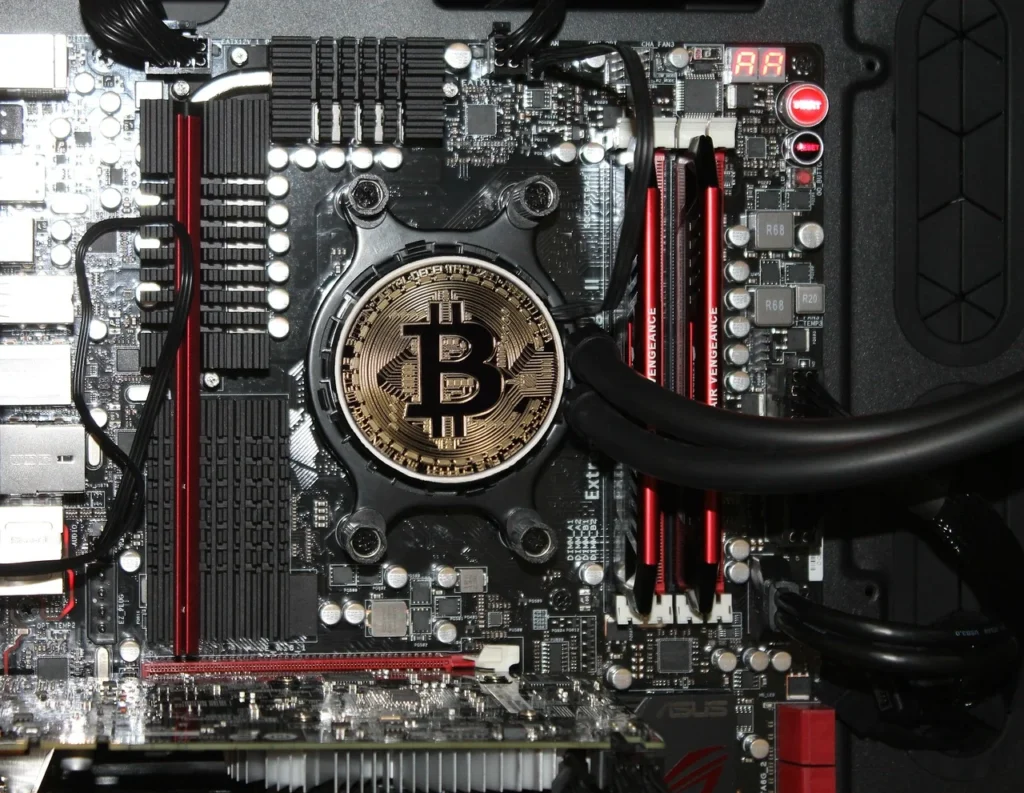Cryptocurrency Exchanges and Legal Liability
Introduction
Within the fast changing field of digital finance, exchanges for cryptocurrencies have become more important drivers of the growing digital asset market. Modern financial systems now rely heavily on these platforms, which let users purchase, sell, and trade a wide range of cryptocurrencies including Bitcoin, Ethereum, and many more digital tokens. Their importance goes beyond simple transactional activity; they guarantee the liquidity and accessibility of digital assets, which makes them indispensible in the worldwide market. But with their prominent role in the financial ecosystem comes a great degree of legal liability and scrutiny. Examining the junction of legal responsibility and bitcoin exchanges can help one to understand a complicated and multifarious problem. The legal and regulatory systems controlling these platforms are changing along with the maturity of the bitcoin scene. Whether they are casual traders, large investors, or regulatory agencies, everyone engaged in the digital asset market depends on this constant interaction between technical development and regulatory control.
One cannot stress the need of knowing the legal consequences related to bitcoin exchanges. These are become targets for legal and regulatory concerns as they not only enable financial transactions but also manage significant volumes of customer data and monies. The intricacy of the regulatory surroundings of cryptocurrencies increases along with their commercial expansion. The challenge to strike innovation against consumer protection, financial stability, and criminal prevention drives this complexity. As such, bitcoin exchanges have to negotiate a maze of legal obligations and regulatory expectations that varied greatly across various countries. Long-term survival and profitability of these platforms depend on the capacity to properly control legal risks and guarantee compliance.

Knowledge of Currency Exchanges
Exchanges for cryptocurrencies are digital platforms meant to make trading of them possible. Acting as middlemen between buyers and sellers, they help to trade digital assets for other cryptocurrencies or fiat money such the US dollar, Euro, or Yen. Both controlled and distributed, the two main forms of bitcoin exchanges have different operating systems and characteristics.
The most often used kind of bitcoin exchange is centralized exchange, or CEX. Notable examples include sites such Coinbase, Binance, and Kraken. As middlemen, centralized exchanges enable users to transfer their assets under the care of the exchange. These interactions handle user accounts, run transactions on behalf of consumers, and may provide staking, lending, and margin trading among other services. These interactions are centralized, so they govern the order books, preserve user balances, and supervise transaction processing. While increased liquidity and a simplified trading experience are made possible by this centralizing of risk and duty within the exchange itself, Since their funds are kept in the exchange’s custody, the effects for users in the case of a security breach, operational failure, or regulatory problem might be very noteworthy.
Conversely, distributed exchanges (DEXs) run free from central control supervising transactions. These ideas are embodied on sites such PancakeSwap, SushiSwap, and Uniswap. Blockchain technology is used by DEXs to enable direct peer-to–peer bitcoin trading amongst consumers. Smart contracts help these interactions to maintain liquidity pools and automate trade execution. DEXs lower the danger of centralized control and the vulnerabilities connected with it by eliminating the requirement of an intermediary. This distributed method does, however, also imply that users are in charge of maintaining their own wallets and private keys, which might create certain hazards. DEXs may provide difficulties with liquidity, user experience, and regulatory compliance even when they provide more privacy and control.
Regulating Authorities and Legal Frameworks
The complicated and scattered regulatory environment for bitcoin exchanges reflects the many strategies adopted by various governments worldwide. In the United States, many federal and state entities form a complex regulatory system covering cryptocurrencies. Particularly in relation to tokens that can be considered as securities, the Securities and Exchange Commission (SEC) is very important in supervising the compliance of exchanges with securities regulations. While the Financial Crimes Enforcement Network (FinCEN) monitors anti-money laundering (AML) rules, the Commodity Futures Trading Commission (CFTC) watches derivatives and futures contracts connected to cryptocurrencies. Further complicating the regulatory scene are state-level authorities who may enforce their own rules.
Regulating strategies differ greatly internationally. Setting worldwide norms for AML and combatting funding of terrorism (CFT), the Financial Action Task Force (FATF) affects national rules. Some nations, like Switzerland, have created a friendly legislative framework for innovation in cryptocurrencies, therefore offering business assistance and well defined rules. According to Switzerland’s strategy, rules allowing blockchain technology to flourish while guaranteeing AML compliance help to ensure development of these technologies is facilitated. Reflecting a more cautious or antagonistic attitude toward digital assets, nations like China have embraced restrictive policies like restrictions on bitcoin trading and initial coin offerings (ICOs).
The dynamic character of bitcoin technology and market behavior adds even another level of complexity to the regulatory environment. To handle new hazards and problems, governments and regulating agencies are always evaluating and changing their strategies. For bitcoin exchanges, this continuous development generates both possibilities and challenges; they have to be alert to legislative changes and modify their business practices.
Legal Obligations of Cryptocurrency Exchanges
Reflecting their function as middlemen and guardians of digital assets, cryptocurrencies exchanges have a great range of legal obligations. A basic need is following anti-money laundering (AML) and fighting funding of terrorism (CFT) rules. Strong know-your-customer (KYC) processes are required by exchanges to confirm user identities. Usually, this procedure consists on gathering and validating personal data including biometric data, proof of residence, and government-issued identity. Exchanges assist to stop illegal activity like fraud, terrorist funding, and money laundering by implementing KYC rules.
Apart from AML and CFT compliance, bitcoin exchanges have to follow data security rules to protect consumers’ financial and personal data. Tight requirements for data privacy and security are mandated by European Union rules including the General Data Protection Regulation (GDPR). Exchanges functioning in areas governed by GDPR must have policies in place to safeguard user data, guarantee data accuracy, and provide consumers rights connected to their personal information. Ignoring data security rules could lead to major penalties and harm of reputation.
Exchanges also have to negotiate securities rules, especially in relation to tokens that can be categorized as such. If a token is classified as a security, the exchange may be subject to extra legal duties including disclosure and registration requirements. Preventing market manipulation and fraud depends on trading platforms running fair and open policies. Exchanges have to have policies in place to spot front-running, insider trading, wash trading, and manipulative trading methods.

Legal Liability Risk
Legal responsibility does not exclude bitcoin exchanges from even their attempts to follow rules. Many situations could cause legal issues and possible liability for exchanges. Security breaches—where hackers get illegal access to the computers of the exchange and pilfers customers’ money or private data—are one major concern. Such leaks can seriously affect the image of the exchange and cause financial losses for consumers. Affected customers might sue for reimbursement for their losses, and regulatory authorities could penalize or sanctions on the exchange for failing to maintain sufficient security protocols.
Still another area of worry is regulatory non-compliance. Exchanges of cryptocurrencies have to follow a complicated set of rules, so non-compliance with these criteria could result in legal consequences. Regulatory authorities might look at exchanges discovered to be in legal or regulatory breach and engage in enforcement against them. This may include fines, penalties, or even the cessation of exchange activity. The fast changing character of cryptocurrencies rules adds to the difficulty as exchanges have to constantly watch and adjust to new or changed legal criteria.
Legal responsibility also is a possibility from operational mistakes. Technical problems or mistakes in the systems of the exchange might cause users—failed transactions or erroneous account balances—financial losses. Legal lawsuits from consumers who suffer damages resulting from these operational problems might arise for exchanges. Furthermore, exchanges guarantee that their systems are dependable and strong; so, neglect of operational requirements may result in legal and regulatory repercussions.
Present Cases and Precedents
The knowledge of legal responsibility in the industry has been much changed by many well-publicized court rulings concerning bitcoin exchanges. One of the most well-known examples is the 2014 security hack at once-dominant bitcoin exchange Mt. Gox. At the time, the hack claimed almost 850,000 Bitcoins, valued hundreds of millions of dollars. The aftermath of Mt. Gox’s fall-off resulted in several lawsuits from impacted consumers and underlined the necessity of improved security policies and government supervision within the bitcoin sector.
The Mt. Gox case also underlined the need of having efficient risk control plans and insurance to guard against any losses. The collapse of Mt. Gox led industry players and regulatory authorities to advocate more strong security policies and more precise legislative rules for bitcoin exchanges. Still a major source of reference for debates on the legal and regulatory obligations of bitcoin exchanges, the case is
More recently, for claimed securities law breaches, the Securities and Exchange Commission (SEC) has sued many bitcoin exchanges. These cases usually include accusations that failed to follow laws pertaining to the trading of securities or that exchanges helped to trade tokens that ought to have been registered as securities. The enforcement activities of the SEC have underlined the need of regulatory compliance as well as the possible consequences of non-adherence. These decisions have also helped to create legal precedents that define the environment of regulations for bitcoin exchanges.
Insurance and Risk Reducing Techniques
Many bitcoin exchanges are buying insurance coverage and using thorough risk management techniques to control legal and financial hazards. Protection against many hazards—including losses stemming from operational failures, security breaches, or other unanticipated events—can come from insurance coverage. Exchanges could, for instance, get cybersecurity insurance to help with data breaches or hacking-related losses. This insurance offers a safety net for the exchange and its users as well as aid to lessen the financial effect of such incidents.
Apart from insurance, bitcoin exchanges are funding sophisticated cybersecurity initiatives to protect their systems against breaches and pilfers. This include putting regular security audits, encryption, and multi-factor authentication into use. Third-party security companies may also be engaged by exchanges for vulnerability assessments and penetration testing meant to find and fix any security flaws. These steps will help exchanges lower their security risk and improve their capacity for reaction to and recovery from such events.
To guarantee conformity to legal criteria, risk management techniques also include frequent compliance inspections and audits. Internal controls and policies used in exchanges help to monitor and regulate compliance with AML, CFT, and data security rules. Dealing with legal and compliance professionals will let exchanges negotiate the challenging legal terrain and remain updated about legislative changes. Although they cannot completely remove all risks, insurance and risk management techniques are very important in lessening the effect of any legal obligations and thus protecting the interests of the exchange and its customers.
Future Developments in Regulation
Changing industry standards and continuous government advancements will help to define the legal responsibility and future of bitcoin exchanges. New rules and standards are probably going to develop as governments and regulatory agencies keep tackling the issues presented by digital assets. These changes can call for clearer definitions of legal obligations, more consumer protection policies, and more demanding compliance criteria.

Regulators may, for instance, set new rules for the security and openness of bitcoin exchanges including disclosure and frequent reporting criteria. Improved consumer protection policies may concentrate on making sure exchanges have enough mechanisms in place to ensure against fraud, manipulation, and other hazards. To further give more clarity on the legal regulation of different kinds of tokens, authorities may also create more thorough rules for the categorization and trading of digital assets.
Exchanges of cryptocurrencies have to keep current with these developments and modify their operations to keep compliance and lower legal risks. This might include changing internal rules and practices, funding fresh technology, and interacting with authorities to provide comments and impact the evolution of legal systems. Future exchanges should be shaped by the growing attention on regulatory clarity and standardization, which will also help to control their legal obligations.
Conclusion
The digital asset economy is mostly dependent on cryptocurrency exchanges as they enable the trading and administration of cryptocurrencies as well as help to provide liquidity and accessibility of digital resources. Their activities are accompanied, nonetheless, by major legal obligations and possible liabilities. From following anti-money laundering and fighting the funding of terrorism rules to controlling security breaches and operational mistakes, exchanges must negotiate a convoluted and changing regulatory environment. Ensuring that exchanges run within the law and safeguard the interests of their users depends on an awareness of the subtleties of legal responsibility and use of sensible risk management techniques.
Constant legislative changes and market trends will help to further build the legal framework controlling bitcoin exchanges as the sector of cryptocurrencies develops and expands. Maintaining prospering in this changing climate for participants in the bitcoin ecosystem depends on their being aware and proactive in handling legal and regulatory obstacles. Key elements in the success and longevity of cryptocurrency exchanges in the years to come will be capacity to properly control legal risks, guarantee compliance, and evolve with the times.